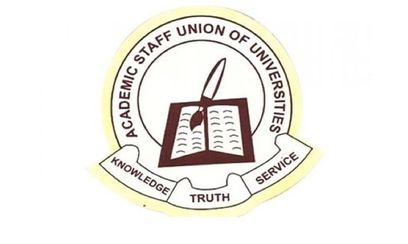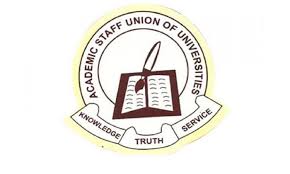ASUU threatens strike over non-constitution of universities governing councils


The peace in the university system may be jeopardised once more, following a new strike threat by the Academic Staff Union of Universities (ASUU).
The academics gave Tinubu two weeks to resolve all outstanding demands, including the delay in creating governing councils for universities since assuming office as president.
The ASUU’s latest threat of industrial action is the first since the Tinubu administration took power on May 29, 2023.
The union last went on strike in 2022, shortly before the end of Muhammadu Buhari’s administration.
Emmanuel Osodeke, President of ASUU, addressed a meeting at the union’s headquarters in Abuja on Tuesday to lament their situation, claiming that academics’ living conditions are deteriorating.
Osodeke stated that the ASUU leadership has received alarming reports about the federal and state governments’ failure to address the lingering issues that compelled the union to go on a nationwide strike from February to October 2022.
Speaking further, Osodeke stated that the National Executive Council of ASUU had seen that there were no real efforts to resolve the unpleasant situation.
“Reports available to NEC indicate that an increasing number of Nigerian academics died while thousands of others are nursing life-threatening ailments occasioned by work-related stress, absolute pauperization and multidimensional insecurity,” Osodeke stated.
Osodeke who faulted the salary increment approved by the Federal Government recently for academics, said, “Even with paltry salary award, the current take-home pay of a professor at bar is about $500 per month. In the face of a heightened tax regime, what a professor earns is about $400 per month which is a scandalous under-valuation of the scholarship.”
The body said it is immediately calling on the government to immediately set in motion the process that will lead to the review and signing of the Nimi Briggs-led renegotiated draft agreement as a mark of goodwill and assured hope for Nigerian public universities.
Speaking on the dissolution of the governing councils by the Federal Government 11 months ago, Osodeke urged the citizens to hold the government responsible, “if the matter of the Governing Councils is allowed to snowball into an avoidable industrial crisis.”
Osodeke also noted that the position of the union remains unchanged over the issue of the Integrated Personnel and Payroll Information System popularly known as IPPIS.
In conclusion, Osokode said, “NEC condemns in strong terms the seeming refusal of the federal and state governments to decisively address all outstanding issues with the union; NEC rejects all the ongoing illegalities and flagrant violation of university autonomy in public universities as a result of non-reinstatement of Governing councils and NEC shall reconvene after two weeks from the date of the NEC meeting to review the situation and take a decisive action to address the issues.”






